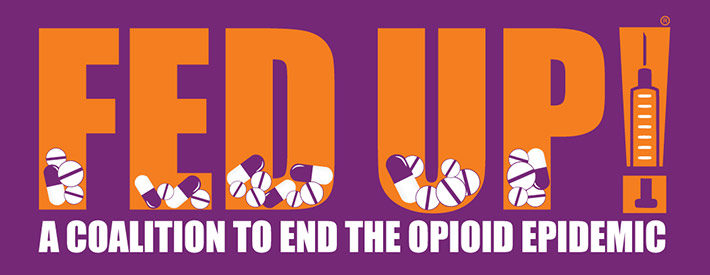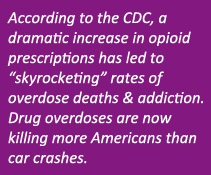Treatment is the most vital component in dealing with the opioid addiction epidemic. Treatment saves lives. Due to advocacy efforts, treatment is more available now than it was. In 2016, the NSDUH survey showed that 453,000 (21.6%) Americans with OUD received treatment for OUD. In 2017, that number rose to 603,000 (28.6%). But this is far short of what is needed.
Obtaining treatment continues to be a real challenge to those with OUD. In general, accessing treatment remains more difficult than getting drugs. We have no simple universal route into treatment, no place where a patient can simply show up and be guaranteed entry. And the power of addiction is such that the OUD patient needs help now, or the opportunity for treatment may be lost. Difficulty accessing treatment often results in no treatment at all.
Medicaid has provided simpler entry into treatment. Americans with OUD who are on Medicaid are significantly more likely to receive OUD treatment (43%) than those who are uninsured (21%) or have private insurance (23%). It is ironic that so few of those with private insurance are receiving OUD treatment, but many of those with insurance who have attempted to obtain treatment can attest to what a frustrating experience it can be.
Obamacare (The Affordable Care Act) made Medicaid available to millions of Americans living in the 36 states that accepted the terms of Medicaid Expansion, under which Medicaid eligibility criteria rose from 43% of the poverty line to 138% of the poverty line, making Medicaid newly available to 12.7 million Americans. This has been of great value to the working poor needing OUD treatment.
But 14 states did not accept the terms of Medicaid expansion. Obtaining Medicaid is not possible in those states for many of the 2.2 million people in those states whose income falls between 43% and 138% of the poverty line. These are the working poor who make too much money to be on Medicaid and are too poor to afford Obamacare insurance, even with subsidies.
Worse, the proposed 2019 Federal Government Budget would eliminate Medicaid for the 12.7 million Americans only recently covered by Medicaid expansion.
Over the past few years, the federal government has enacted several pieces legislation designed to improve the prospects of treatment for those with OUD. These include The Comprehensive Addiction and Recovery Act (CARA), the 21st Century Cures Act, The Omnibus Spending Bill of 2018, and the SUPPORT for Patients and Communities Act of 2018 (see * below for elaboration on these pieces of legislation.)
None of these have been comprehensive in the way that the successful Ryan White Comprehensive AIDS Resources Emergency Act of 1990 was. The Ryan White Act committed the federal government as the payer of last resort for treatment for all those with HIV or AIDS. None of these allow an OUD patient a guaranteed path of entry into treatment. And the current legislation does not make a commitment to sustained funding. It is unreasonable to expect people to build a clinic knowing that the funding for treatment could dry up in 2 years.
And parts of the current legislation came with a price which undermined its very goals. The ACA did not allow Medicare to negotiate drug prices with manufacturers
Last year, Sen. Elizabeth Warren (D-Mass.) and Rep. Elijah Cummings (D-Md.) introduced the Comprehensive Addiction Resources Emergency Act, a bill that would provide $10 billion per year over 10 years to deal with the opioid addiction epidemic. This bill is modeled after the Ryan White Act.
A major step of this kind is vital if we are to develop easy availability of treatment for all those afflicted with OUD and truly diminish the impact of this epidemic. Please contact your Congressman and Senators.







